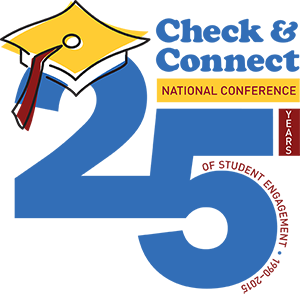

Main navigation | Main content

View Keynote Presentations | View Models of Implementation Panel | View Presentation Slides | View Photos
Rebecca Phillpott, Program Manager, San Diego Unified School District
Darnell T. Logan, Ed.D., Assistant Director of Special Education, DeKalb County School District
Peg Sullivan, M.Ed., SPDG Director, Florida Gulf Coast University
Andrea Matheson, Ph.D., School Psychologist, Heartland Area Education Agency
Moderated by Dr. Sandra L. Christenson, Birkmaier Professor of Educational Leadership, Department of Educational Psychology, University of Minnesota
This panel discussion brings together Check & Connect leaders from around the country for a discussion on models of Check & Connect implementation in schools within a district, region, or across an entire state. Panelists will describe their Check & Connect mentoring model; Check & Connect's fit with other initiatives, such as PBIS; working with students and families; and programmatic sustainability, scaling up, and funding. District-wide sites include San Diego Unified School District — the site of a recent research study led by the American Institutes for Research — in San Diego, California (Rebecca Phillpott) and Dekalb County School District in Dekalb, Georgia (Darnell T. Logan). The Florida Gulf Coast University is implementing Check & Connect across the state of Florida via Florida's State Personnel Development Grant (Peg Sullivan), and the Heartland Education Agency is one of nine Area Education Agencies (AEAs) implementing Check & Connect in the State of Iowa (Andrea Matheson).
Derek Peterson, Founder and Principal Director, International Institute for Student Support (IISS)
We used to assume that most youth would progress successfully through adolescence. Sure, some kids failed, but they were "other people's children." That world has changed. The Student Support Card™ supports the knowledge of what people, of all cultures, know and understand about what kids need to succeed. It unites competing programs, professional and personal paradigms and vocabularies, and funding silos within a community to one focus — Helping Kids Succeed. It incorporates all of the evidence-based resiliency frameworks and offers a way to focus resources on what matters.